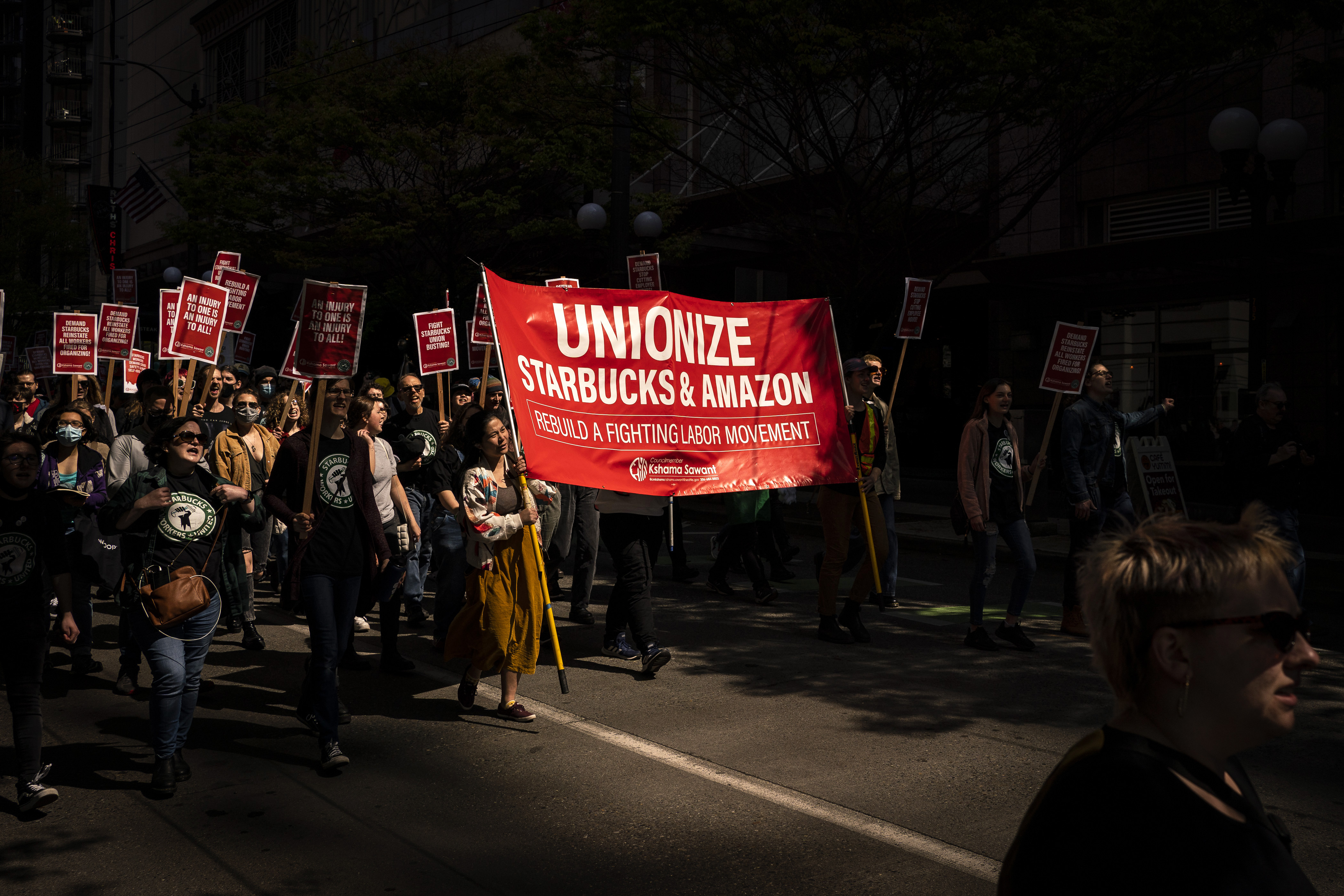The success or failure of a union election is almost always determined by knowledge of the workforce and an intimate understanding of the values and beliefs of each employee. The union suppression industry has made workforce intelligence gathering a key element of its trade.
In the ’70s and ’80s, industrial psychologist Charles Hughes trained over 27,000 managers and supervisors to “make unions unnecessary.” One of his methods was to promote the use of surveys to collect information about workers. Employers signed up by the hundreds to attend Hughes’s talks, including a seminar titled, “Attitude Survey Techniques for Measuring Union Sentiments.” CUE — which hosted the conference — helped streamline the emerging industry of management consultants, industrial psychologists, and law firms that helped turn the tide against the labor movement, which has declined precipitously since the ’70s.
“It’s intimate to talk about race and identity,” said Duff. “That creates a vulnerability, and to have consultants come in and say, ‘Hey, look, I understand the discrimination you’ve gone through, you can open up to me,’ that can get you a lot of valuable intelligence.”
Such vulnerabilities can be key insights during an organizing drive. In 2011, Pratt Logistics opened a new plant in Pennsylvania. The company brought in a man who only identified himself as an efficiency expert named “Jay.” Jay went around conducting one-on-one interviews with workers, asking them about what problems they faced, their values, and concerns.
Later, when truckers and warehouse workers at Pratt began steps to form a union at the new plant, the company instantly fired union sympathizers. It wasn’t until later that they found out Jay’s real identity: Jason Greer, the union suppression consultant, who had been hired explicitly to identify potential union supporters.
When the Teamsters union later brought the case to court, arguing illegal retaliation and unfair labor practices, labor attorneys noted that Greer on his website explicitly advertised himself as a “union buster” who “wakes up every day with one goal in mind, and that’s to keep unions from taking over and ruining businesses that my friends and my clients have worked their entire lives to build.”
Those words are gone from Greer’s website. Now he lists himself as a diversity consultant.
Danine Clay and Byron Clay of the firm Diverse Workforce Consultants are among the union avoidance professionals who have worked on recent high-profile campaigns to persuade workers against joining a union at Hershey’s and at Mission Hospital in North Carolina, according to disclosures. Their firm touts its “ability to empower management with employee selection, retention, diversity training and skills, and union avoidance tools and strategies are unmatched.”
Danine Clay was listed on disclosure forms as a consultant for Amazon engaged in persuading warehouse workers not to join a union. Over the phone, she said the disclosure form was incorrect but declined to comment further.
“There’s kind of a jiujitsu, to get employees thinking about racial justice issues, at least superficially, as a way to deflect labor and collective bargaining,” said Michael C. Duff, a law professor at the University of Wyoming. Duff attended law school after union organizing cost him his job working for an airline. He understands why the diversity, equity, and inclusion field has become an asset for companies hoping to skirt unionization — particularly at a time when employee interest in both is rising rapidly.
“Labor consultant folks converting into DEI folks,” added Duff. “It’s really a wonderful kind of psyops, right, because these people are supposed to be close to employees.”



This goes deep. Universities will teach every axis of oppression except for class. When they do teach class, it’s as a symbolically coded form of difference rather than a relationship to production. They’re getting justice oriented people to think about everything but class so they won’t organize along class lines.